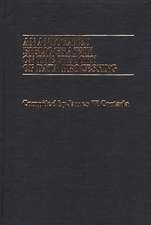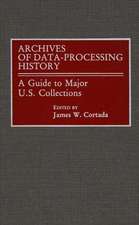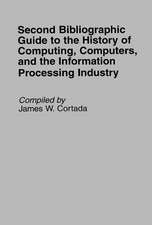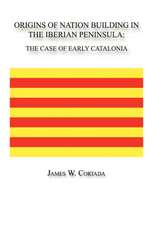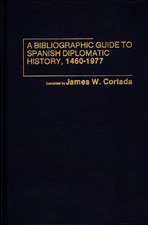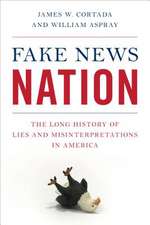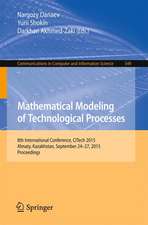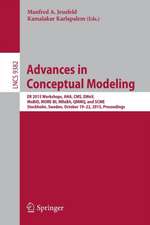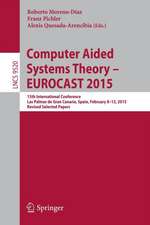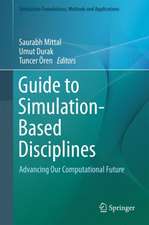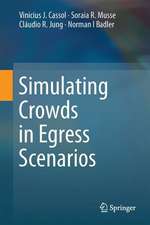From Urban Legends to Political Fact-Checking: Online Scrutiny in America, 1990-2015: History of Computing
Autor William Aspray, James W. Cortadaen Limba Engleză Hardback – 30 aug 2019
Topics and features: describes how some of the major players in political fact-checking began with the purpose of scrutinizing and debunking of urban legends; considers how this was part of a wider culture, encompassing B-grade horror movies, truth-or-fiction television shows, and groups warning about computer viruses; explains how such developments are connected, revealing political fact-checking as one of many forms of scrutiny applied in the face of a complex, dangerous world; provides a range of detailed case studies, covering such topics as the rumors surrounding the 9/11 terrorist attacks, and academic interest in contemporary legends; discusses how pre-Internet technologies such as bulletin boards, Usenet, and proprietary online service providers such as CompuServe and AOL were used to both disseminate and debunk urban legends; examines the rise of political fact-checking, reviewing all of the major initiatives in this area undertaken in the United States.
This timely study touches on issues of popular culture and major events, and offers profiles of colorful individuals and organizations, and as such will appeal to a broad audience interested in the history of fact-checking and efforts to protect the political process from falsehoods.
| Toate formatele și edițiile | Preț | Express |
|---|---|---|
| Paperback (1) | 182.34 lei 38-44 zile | |
| Springer International Publishing – 30 aug 2020 | 182.34 lei 38-44 zile | |
| Hardback (1) | 176.49 lei 22-36 zile | |
| Springer International Publishing – 30 aug 2019 | 176.49 lei 22-36 zile |
Din seria History of Computing
- 21%
 Preț: 248.72 lei
Preț: 248.72 lei - 20%
 Preț: 276.62 lei
Preț: 276.62 lei - 20%
 Preț: 440.22 lei
Preț: 440.22 lei - 20%
 Preț: 987.54 lei
Preț: 987.54 lei -
 Preț: 291.09 lei
Preț: 291.09 lei - 20%
 Preț: 224.97 lei
Preț: 224.97 lei -
 Preț: 253.84 lei
Preț: 253.84 lei -
 Preț: 294.36 lei
Preț: 294.36 lei -
 Preț: 326.35 lei
Preț: 326.35 lei - 20%
 Preț: 270.51 lei
Preț: 270.51 lei - 20%
 Preț: 333.54 lei
Preț: 333.54 lei - 20%
 Preț: 764.76 lei
Preț: 764.76 lei - 20%
 Preț: 229.81 lei
Preț: 229.81 lei - 20%
 Preț: 273.64 lei
Preț: 273.64 lei - 20%
 Preț: 227.29 lei
Preț: 227.29 lei -
 Preț: 315.80 lei
Preț: 315.80 lei -
 Preț: 479.72 lei
Preț: 479.72 lei - 20%
 Preț: 235.56 lei
Preț: 235.56 lei - 20%
 Preț: 638.55 lei
Preț: 638.55 lei - 20%
 Preț: 216.00 lei
Preț: 216.00 lei - 20%
 Preț: 1008.62 lei
Preț: 1008.62 lei - 20%
 Preț: 270.19 lei
Preț: 270.19 lei - 20%
 Preț: 983.71 lei
Preț: 983.71 lei - 20%
 Preț: 224.50 lei
Preț: 224.50 lei -
 Preț: 375.40 lei
Preț: 375.40 lei - 20%
 Preț: 1046.71 lei
Preț: 1046.71 lei - 20%
 Preț: 645.31 lei
Preț: 645.31 lei -
 Preț: 238.69 lei
Preț: 238.69 lei - 20%
 Preț: 360.71 lei
Preț: 360.71 lei - 20%
 Preț: 281.10 lei
Preț: 281.10 lei -
 Preț: 325.97 lei
Preț: 325.97 lei -
 Preț: 325.43 lei
Preț: 325.43 lei
Preț: 176.49 lei
Preț vechi: 220.62 lei
-20% Nou
Puncte Express: 265
Preț estimativ în valută:
33.77€ • 35.35$ • 27.94£
33.77€ • 35.35$ • 27.94£
Carte disponibilă
Livrare economică 17-31 martie
Preluare comenzi: 021 569.72.76
Specificații
ISBN-13: 9783030229511
ISBN-10: 3030229513
Pagini: 150
Ilustrații: X, 146 p. 4 illus., 2 illus. in color.
Dimensiuni: 155 x 235 mm
Greutate: 0.32 kg
Ediția:1st ed. 2019
Editura: Springer International Publishing
Colecția Springer
Seria History of Computing
Locul publicării:Cham, Switzerland
ISBN-10: 3030229513
Pagini: 150
Ilustrații: X, 146 p. 4 illus., 2 illus. in color.
Dimensiuni: 155 x 235 mm
Greutate: 0.32 kg
Ediția:1st ed. 2019
Editura: Springer International Publishing
Colecția Springer
Seria History of Computing
Locul publicării:Cham, Switzerland
Cuprins
The Concept of Scrutiny.- From Debunking Urban Legends to Political Fact-Checking.- Urban Legends and Rumors Concerning the September 11 Attacks.- Debunking as Hobby, Entertainment, Scholarly Pursuit, and Public Service.- Recent Political Fact-Checking.- Where Do We Go Next?.
Notă biografică
William Aspray is a full professor in the Department of Information Science at the University of Colorado Boulder. He has also taught at the University of Texas Austin, Indiana University Bloomington, Virginia Tech, University of Pennsylvania, and Harvard University, among others. He holds a Ph.D. in the history of science from the University of Wisconsin-Madison. He has served as the Director of the IEEE Center for the History of Electrical Engineering, Associate Director of the Charles Babbage Institute for the History of Information Processing at the University of Minnesota, and Executive Director at the Computing Research Association. He is the author or editor of over two dozen books dealing with the history of computing, mathematics, and information. He has published more than 100 articles in the key information history journals and served on their editorial boards, including Information Research, The Information Society, IEEE Annals of the History of Computing, Information & Culture: A Journal of History, and Communications of the ACM.
James W. Cortada is a Senior Research Fellow at the Charles Babbage Institute at the University of Minnesota. He holds a Ph.D. in modern history and worked at IBM in various sales, consulting, management, and executive positions for 38 years, including in IBM’s management research institute, The IBM Institute for Business Value (IBV). There, he led and participated in over three dozen global studies on the use of information and business managerial practices. He is also the author of over a dozen books on the management of business, information technologies, and management. He also authored nearly two dozen books on the history of information technology, its business practices and industry, and about knowledge management. His articles on the history of information have appeared in many of the “journals of record” for each topic he has studied, including Information and Culture, Library and Information History, Business History Review, IEEE Annals of the History of Computing, Enterprise and Society, and Technology and Culture, among others. He serves on the editorial boards of Information and Culture, Library and Information History, and IEEE Annals of the History of Computing.
James W. Cortada is a Senior Research Fellow at the Charles Babbage Institute at the University of Minnesota. He holds a Ph.D. in modern history and worked at IBM in various sales, consulting, management, and executive positions for 38 years, including in IBM’s management research institute, The IBM Institute for Business Value (IBV). There, he led and participated in over three dozen global studies on the use of information and business managerial practices. He is also the author of over a dozen books on the management of business, information technologies, and management. He also authored nearly two dozen books on the history of information technology, its business practices and industry, and about knowledge management. His articles on the history of information have appeared in many of the “journals of record” for each topic he has studied, including Information and Culture, Library and Information History, Business History Review, IEEE Annals of the History of Computing, Enterprise and Society, and Technology and Culture, among others. He serves on the editorial boards of Information and Culture, Library and Information History, and IEEE Annals of the History of Computing.
Textul de pe ultima copertă
This text presents an historical examination of political fact-checking, highlighting how this is part of a larger phenomenon of online scrutiny that manifests itself in multiple forms. Reflecting the long history of “fake facts” in America, the book discusses important developments in this area from the emergence of the public Internet in the 1990s to the start of the Trump-Clinton presidential election campaigns.
Topics and features:
Dr. William Aspray is a full professor in the Department of Information Science at the University of Colorado Boulder. His other publications include the Springer books Participation in Computing: The National Science Foundation’s Expansionary Programs and Women and Underrepresented Minorities in Computing: A Historical and Social Study. Dr. James W. Cortada is a Senior Research Fellow at the Charles Babbage Institute at the University of Minnesota.
Topics and features:
- Describes how some of the major players in political fact-checking began with the purpose of scrutinizing and debunking of urban legends
- Considers how this was part of a wider culture, encompassing B-grade horror movies, truth-or-fiction television shows, and groups warning about computer viruses
- Explains how such developments are connected, revealing political fact-checking as one of many forms of scrutiny applied in the face of a complex, dangerous world
- Provides a range of detailed case studies, covering such topics as the rumors surrounding the 9/11 terrorist attacks, and academic interest in contemporary legends
- Discusses how pre-Internet technologies such as bulletin boards, Usenet, and proprietary online service providers such as CompuServe and AOL were used to both disseminate and debunk urban legends
- Examines the rise of political fact-checking, reviewing all of the major initiatives in this area undertaken in the United States
Dr. William Aspray is a full professor in the Department of Information Science at the University of Colorado Boulder. His other publications include the Springer books Participation in Computing: The National Science Foundation’s Expansionary Programs and Women and Underrepresented Minorities in Computing: A Historical and Social Study. Dr. James W. Cortada is a Senior Research Fellow at the Charles Babbage Institute at the University of Minnesota.
Caracteristici
Presents a unique focus on the origins of political fact-checking through the larger issue of online scrutiny Examines the use of the Internet as a tool for both the spread and the debunking of rumors and falsehoods, and the use of crowdsourcing, apps, and AI to identify good news sources for politics Covers such topics of wide popular interest as the 9/11 terrorist attacks and the rise of fake facts in political discourse, and includes profiles of colorful individuals and organizations



